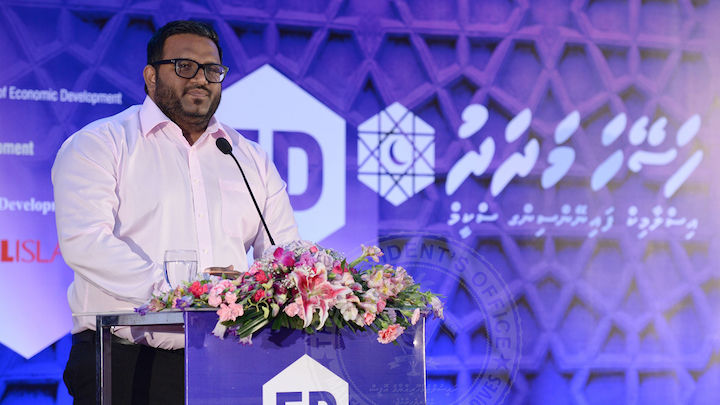Minimum reserve requirement for banks reduced to 10 percent
The government has reduced the minimum reserve requirement (MRR) for commercial banks at the Maldives Monetary Authority (MMA) from 20 percent to 10 percent, Vice President Ahmed Adeeb revealed last night.

24 Aug 2015, 09:00
The government has reduced the minimum reserve requirement (MRR) for commercial banks at the Maldives Monetary Authority (MMA) from 20 percent to 10 percent, Vice President Ahmed Adeeb revealed last night.
Speaking at a function held at the Dharubaaruge convention centre for the launching of an Islamic finance loan scheme for small and medium-sized enterprises (SMEs), Adeeb said the decision was made last Thursday in a bid to increase lending to the private sector.
“It is a very big step. The money that banks have to do business with have to be kept as minimum reserve – if MVR100 is deposited, MVR25 must be kept,” he explained.
Following the policy change, Adeeb said banks would now save MVR15 from every MVR100 deposited.
Become a member
Get full access to our archive and personalise your experience.
Already a member?
Discussion
No comments yet. Be the first to share your thoughts!
No comments yet. Be the first to join the conversation!
Join the Conversation
Sign in to share your thoughts under an alias and take part in the discussion. Independent journalism thrives on open, respectful debate — your voice matters.




